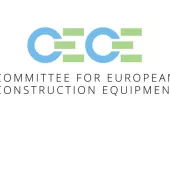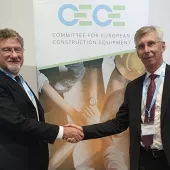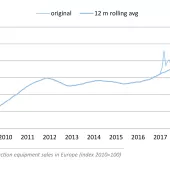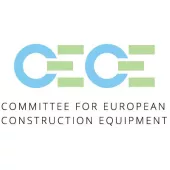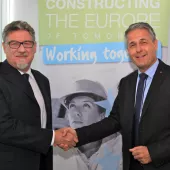Positive environment for CECE Congress 2018
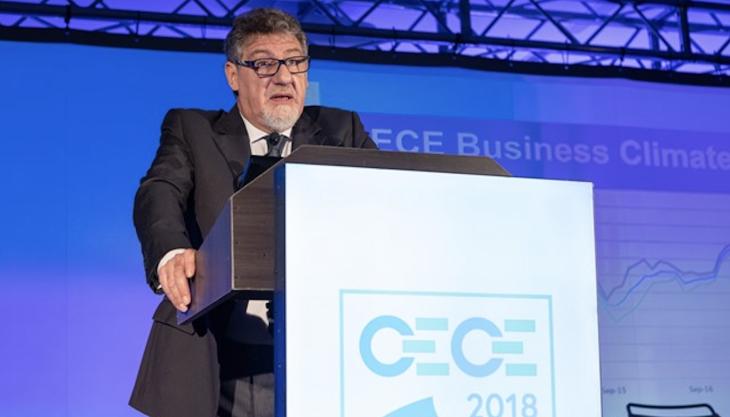
European construction equipment industry gathers in Rome in the midst of positive business cycle
ROME was the setting for this year’s Committee for European Construction Equipment (CECE) Congress, the biennial gathering of the European construction equipment industry, hosted by the Italian construction equipment association UNACEA.
Ranging from European and global business leaders to leading exhibition organizers, close to 200 delegates met to discuss with policy-makers and economic researchers the future of the industry, its road to digital transformation and the turning point in EU politics that is represented by the May 2019 European parliament elections.
With approximately 1,200 companies, the European construction equipment industry employs 300,000 people and generates revenues of €40 billion. For the second year in a row, the biennial CECE event took place in a positive economic environment.
After booming with a 15% increase in 2017, sales of construction equipment in 2018 continue to grow all over Europe and remain on track for an estimated 5–10% increase at the end of 2018.
This is well represented by the CECE Business Climate Index – a monthly measurement of the sector’s business confidence – which, despite a slight cooling-off, remains at extremely high levels, attesting to the overall optimism in the industry.
This tendency is confirmed by the good conditions in the leading European markets in terms of public and private construction investments. In addition, expectations of further growth come from civil engineering and infrastructure, pushed upwards by certain flagship projects, such as the ‘Grand Paris’ in France and ‘HS2’ in the UK.
The market situation in the Congress host country, Italy, is also showing very positive signs, with a 25% sales increase in the first half of 2018 and an overall production output of €2.6 billion in 2017.
This positive environment allowed the CECE delegates to discuss with much optimism the challenges coming from the global political environment, the technology drivers impacting construction and the regulatory developments from the EU.
In terms of technology, the main driver for industry transformation is digitalization. In the spirit of the Congress title, ‘Building Customer Loyalty through a Common Vision’, the CECE Congress addressed this topic with a value-chain approach, involving the communities of machine users and clients in the conference programme.
In addition, the result of an eight-month project into the digital transformation of the construction industry was presented for the first time at the Congress.
On digital, CECE President Enrico Prandini (pictured) said: ‘This study is another step of CECE’s investment into digitizing our industry. In the last eight months, a specialized team of consultants, supported by a small group including contractors and rental companies, have analyzed how to facilitate the uptake of digital construction machinery in order to reap the benefits of data on productivity, safety and sustainability, our three major challenges.
‘In my opinion, if there is one key takeaway from this project, it is the need to change the business models to unlock the value creation of data.’
With EU regulatory development slowing down and Brussels preparing for the deep institutional changeover of 2019, the Congress also officially endorsed the CECE manifesto for the European Parliament elections.
Mr Prandini said: ‘Our industry is an integral part of the construction value chain, a sector employing more than 18 million people, generating 9% of the EU GDP and responsible for building the places where Europeans live and work.
‘We believe this importance is often overlooked by politicians and legislators and we want to change that. This is why we call on all candidates and future elected members of the European Parliament to support a majority coalition mandate to the European Commission only if industry is shortlisted as a top-five priority of its political programme.’
CECE is calling on the EU to equip itself with a long-term vision and strategy for a proper Industrial Policy. It says European industry continues to be innovative and is transforming itself thanks to digital technologies, but global tensions and fierce competition, in the long run, risk limiting the competitiveness of EU manufacturing.




